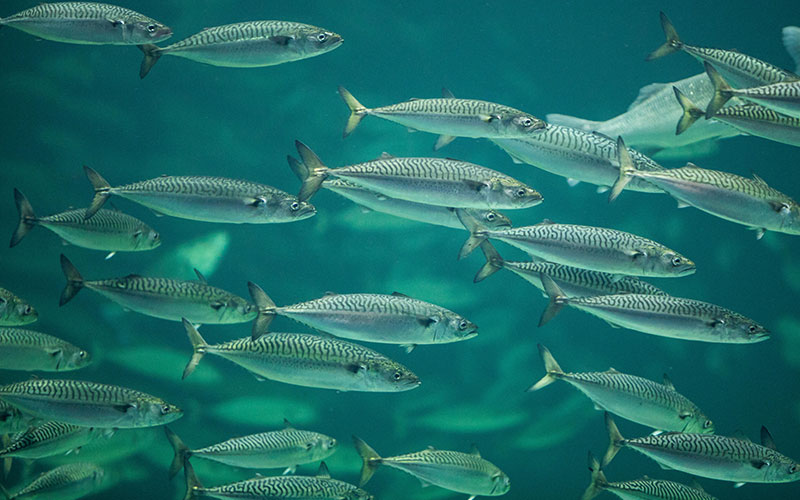MONITORING GAPS JEOPARDIZE MACKEREL RECOVERY EFFORTS
This year, DFO closed the commercial and bait fishery for Atlantic mackerel, apart from a small exception for bluefin tuna operators. It was a difficult but necessary decision. Mackerel has been in the critical zone for more than a decade. Failure to rebuild these crucially important forage fish means that countless other species and nearby coastal communities will continue to be negatively affected.
Unfortunately, the existing Atlantic mackerel rebuilding plan fails to meet international standards and DFO’s own policy guidance. This underscores the importance of the decision to include Atlantic mackerel in the first batch of stocks subject to new rebuilding regulations. As a result, DFO must provide a more robust plan with abundance targets and scientifically informed timelines within 24 months, with the possibility to extend by another 12 months if required.
To do that, it needs to know how much mackerel is being pulled out of the water. And that’s where this fishery falls short, with DFO estimating that 2,000 to 5,000 tonnes of catches could be unreported each year.

Credit: Alamy Stock Photo/Frank Hecker
In 2021, DFO established daily recreational catch limits to help address previously unregulated and unlimited fishing. However, there is still no mechanism for reporting catches in the recreational fishery, and a requirement to submit landings records was only recently introduced for bait harvesters in some areas.
Further complicating matters is the transboundary nature of this fishery, with both Canada and the U.S. fishing a portion of the stock. The two countries must coordinate on strong and consistently applied management measures and monitoring — particularly for the bait and recreational fisheries.
To rebuild Atlantic mackerel, DFO needs to rigorously manage and limit all sources of fishing on this vulnerable and valuable species.
Mackerel mortality might be twice as high as this critically depleted stock can withstand. But without good monitoring data, scientists can’t develop reasonable estimates.
GOVERNMENT ACTIONS FALLING SHORT FOR FORAGE FISH
Despite some opposition from industry, DFO followed science advice in closing the Atlantic mackerel and 4T spring herring fisheries this year. These forage fish play a crucial role in the Northwest Atlantic ecosystem, feeding many other species, including cod, tuna, seabirds and whales.
However, DFO failed to do the same for other key forage fisheries: 2J3KL capelin and 4VWX Atlantic herring. Maintaining high quotas for these depleted populations is a short-sighted decision that undermines the long-term socio-economic value of the fishery and fails to protect the health and abundance of the ocean.
Today, none of the Atlantic forage fish stocks are healthy. Yet more than half of forage stocks lack LRPs, and more than a third don’t have USRs. Meanwhile, DFO categorizes the status of 42 per cent of forage stocks as “uncertain.”
Healthy ecosystems depend on healthy forage fish. That’s why DFO must apply ecosystem-based principles, consistently implement widely accepted best practices outlined in the Policy on New Fisheries for Forage Species and make decisions based on the best available science for the sustainability of these fisheries and the communities they support.*
* Reba McIver, Dr. Robert Rangeley, and Devan Archibald (2021). Small Fish, Big Influence: The Case for Rebuilding Capelin. Oceana Canada. https://oceana.ca/en/publications/ reports/small-fish-big-influence-case-rebuilding-capelin
Isabelle Jubinville, Rebecca Schijns, and Dr. Robert Rangeley (2022). Capelin in Crisis. Oceana Canada. https://oceana.ca/wp-content/uploads/sites/24/Capelin-in-Crisis-2022_final.pdf